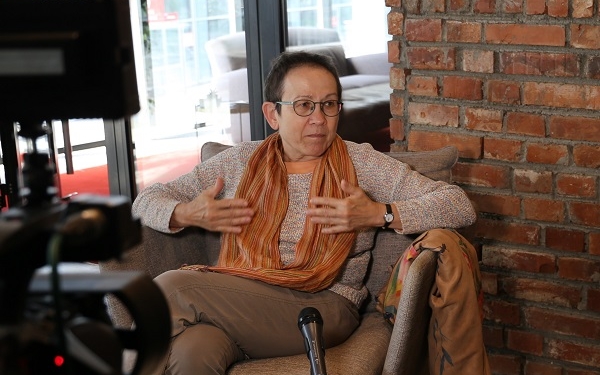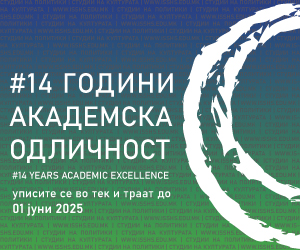Gudrun Steinacker is a former Ambassador of the Federal Republic of Germany in our country. After completing her mission in North Macedonia, Steinacker was Ambassador in Montenegro, after which she retired. As an experienced diplomat, but even more so as a civil society activist, Steinacker is exceptionally active in more areas, of which she mostly focuses on green topics.
She is now Vice-President of the Southeast Europe Association, formed in 1952, an organization that is in search of building bridges between political debate, scientific dialogue and socio-cultural exchange dedicated to Southeast Europe.
We used her visit to Skopje that is related to the topics that she is dealing with in this period, to have a short conversation on current topics.
CIVIL MEDIA: In the context of our big expectations from the decision to be made in Brussels on the start of the negotiations for North Macedonia’s EU accession, and you as a former Ambassador of Germany in North Macedonia, I would like to ask you, having in consideration that you are very active in the region, as part of organizations working in the region, what is your perception on Macedonia’s progress in terms of the EU, in light of the anticipated decision that is expected to be made these days in Brussels for setting a date for negotiations for North Macedonia to join the EU?
STEINACKER: I am convinced that North Macedonia has made many steps in the right direction. I must say that since the new Government came into power in 2017, it is incredible what they have achieved. Certainly, I am also aware of the many problems in your country, social, political ones, and now as an activist for environmental protection, working for the non-governmental organization “Euro Nature” in Germany, I am aware of these problems as well. I think that they can only be resolved in the process of the country joining the EU. I am really glad that the German Parliament decided to support the opening of the process for setting a date for negotiations. I truly hope that Brussels and other EH governments will follow the example. I am really optimistic that this will happen and that as of next year North Macedonia will already be leading the accession talks and that the process of approximation towards the EU, the rules and standards, including Chapter 27 will begin then. This is an area in which I was really active in the last country I was an ambassador in, Montenegro.
I think that protection of the environment and nature is perhaps the biggest challenge and task in the region. Of course, in the context of the social and economic development, because we know what the situation is like, and that young educated people are still massively moving out of the region. This is a huge problem for North Macedonia, as well as for other countries. We, especially I as a former German diplomat, and Germany as an important country- partner of the RNM, should do as much as possible for this process to be stopped and for young people, once successfully educated in Germany or anywhere else in Europe, to return and to help the development of your country.
Nature and the environment are the most important assets that you have to protect and develop, and only then you be able to profit from them.
I wish North Macedonia all the best and am really optimistic that in the next steps to come you will be successful. There are really wonderful people in your country, and every time I am here, last time being in 2017, I meet with these wonderful people, with your very active civil society. I hope that, especially the young people, will see their future here, in this country, in this region, and that EU accession will contribute to them being optimists and for them to invest their capacities here, in their country.
conversation led by: Xhabir Deralla
text editing and transcript: Biljana Jordanovska
editing: Biljana Jordanovska
camera and photography: Atanas Petrovski
translation: Natasa Cvetkovska
This post is also available in: Macedonian





